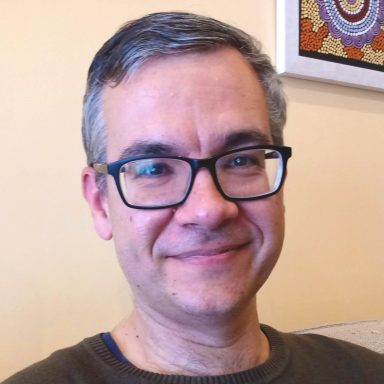To immediately sign the Fair Culture Charter, click here as an individual or here as an organization!
The formulation of the Charter
This Fair Culture Charter is the result of a global participatory effort throughout the year 2023. Artists, creatives, scientists, civil society representatives and ministry representatives from all corners of the world were given a voice.
The Charter was adopted in February 2024 by a partner consortium of 12 institutions.
The process and the Editorial Team
The initial idea to formulate a Fair Culture Charter analogous to the Fairtrade Charter is due to Véronique Guèvremont, who made the proposal in her 2021 groundwork study. At the Fair Culture Side Event to the UNESCO World Conference Mondiacult in September 2022, participants endorsed this idea.
An Editorial Team of nine experts from across the globe was formed in late 2022.
More than 100 experts and institutions participated at several stages across the year 2023 in the process of formulating the Charter, in public and written consultations, to provide their comments as part of a Fair Culture "Sounding Board" and as "Young Experts for Fair Culture" (the Young Experts pulished their own ideas in summer 2023). The first public consultation on the "Fair Culture Charter" took place on 6 June 2023 in Paris and online, in parallel to the UNESCO Conference of Parties of the Convention on Cultural Diversity. Discussions were held also at the 2023 IFACCA World Summit, and in a G20 Working Group.
The Editorial Team has elaborated drafts of the Fair Culture Charter through more than ten sessions of work, presided by Véronique Guèvremont, throughout the year 2023. Its work was facilitated by the German Commission for UNESCO. The Charter was finalized and adopted in February 2024 by the Advisory Group for Fair Culture.
The nine members of the Editorial Team are:

Jordi Baltà Portolés
Consultant and Researcher in Culture and International Relations, Spain
Jordi is a researcher, consultant and trainer in cultural policy, sustainability and international relations. In his work, he aims to promote cultural rights and cultural diversity, and to foster the exchange of knowledge on how culture contributes to building more fair, collaborative and sustainable societies.

Brahim El Mazned
Artistic Director and Cultural Policy Expert, Morocco
Brahim El Mazned is the founder and artistic director of Visa For Music, established in 2014 and held annually in November in Rabat, Morocco, Additionally, since 2004, he has been the artistic director of the Timitar Festival of World Music. Brahim El Mazned is also a member of the EU/UNESCO Bank of Expertise. He serves as a jury member and artistic adviser for various cultural events.

Eddy Johana Gómez
Cultural manager specialized in promoting local music ecosystems, Colombia
Founder and director of Llorona Records, Discos Pacífico and Llorona Foundation, she has created sustainability strategies around roots music from all-around Colombia by connecting unique and powerful local music hub with possibilities around the world. The foundation's projects have created a network that has become a Colombia’s reference for visionary fair-trade focused new music industry.

Véronique Guèvremont
UNESCO Chair on the Diversity of Cultural Expressions, Canada
Professor at the Faculty of Law at Laval University (Quebec), engaged in many roles with UNESCO, La Francophonie and diverse governments. Her research focus is on cultural goods and services in trade agreements, cultural diversity in the digital environment, the impact of AI on discoverability, and the cultural dimension of sustainable development. She co-founded the International Network of Jurists for the Diversity of Cultural Expressions.

Farai Mpfunya
Governance of Culture Consultant; Development, Culture and Creative Sector Expert, Zimbabwe
Cultural governance and development expert. Member of the EU/UNESCO Expert Facility. Served on the International Programme Advisory Committee (IPAC) for the 9th World Summit on Arts and Culture. Grant-making advisor for organizations like UNESCO Aschberg, the Nordic Culture Fund, and UNESCO’s IFCD.

Eduardo Saravia
Cultural advocate, cultural economist, and international consultant, Colombia
Cultural economist and international consultant with global experience in researching, designing, and evaluating public policies for the cultural and creative economy sectors. Member of multiple UNESCO expert groups, including the Experts Facility for the 2005 Convention on Cultural Diversity. Chief Economist at Sound Diplomacy.

Anupama Sekhar
Cultural manager, India / UAE
Anupama Sekhar is a cultural manager specialising in transnational cultural relations. Since 2015, she has been a member of UNESCO’s Expert Facility for the 2005 Convention on the Protection and Promotion of the Diversity of Cultural Expressions, contributing to policy monitoring, capacity building and research missions in this role. Previously, she was Director for Culture at the Asia-Europe Foundation. She is a trained dancer in the Indian classical Bharatnatyam style.

Luanda Smith
Governance and international cultural cooperation specialist, Mexico
Mexican Artist and Cultural Manager. International Cultural Cooperation Consultant since 2010, she specializes in the 2005 UNESCO Convention’s Governance and Civil Society participation. In 2014 she founded the Mexican CSO Creatividad y Cultura Glocal. Nowadays she is an Associated expert for Latin America and the Caribbean at the UNESCO-Aschberg program.

Katrina Stuart Santiago
Artist, writer, essayist, founder of PAGASA, The Philippines
Katrina independently writes art reviews, cultural criticism, popular iconographies, political commentary, opinion, and creative non-fiction; in the mainstream and in fringe. PAGASA is short for People for Accountable Governance and Sustainable Action and intends to form a new civil society that forges issue-based solidarity. Her work is built upon telling silenced stories.
The content of the Charter
The Charter strengthens fairer cultural relationships by articulating a preamble, a definition, four objectives and eight principles intended to promote a sustainable, fair and respectful environment for artists, creatives, and other cultural workers, and, therefore, to safeguard cultural diversity globally.
Read the full text of the Charter or download the PDF brochure in ►English ►Français ►Español ►Deutsch ►Srpski ►Català ►Japanese / 日本語